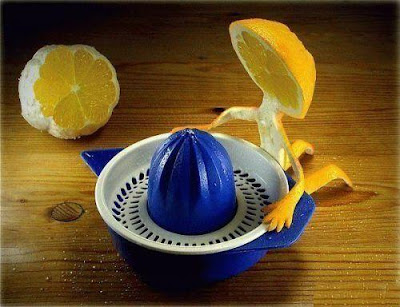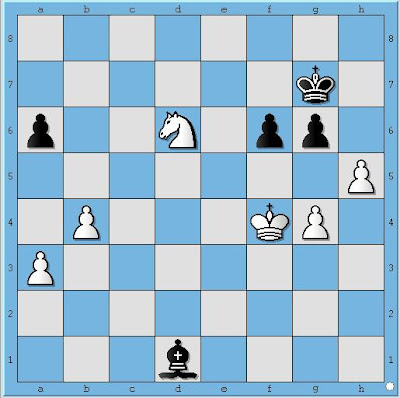Getting over my endgame phobia

.
.
.
I'm going through a huge development lately. Due to my new openings and my new playing style I can enter an endgame almost at will. During my gambit years I reached an endgame once every 100 games or so. Before I entered an endgame in those gambit games usually one of the following happened:
When I was better I had to offer a draw since I was in time trouble.
When I was equal I offered a draw due to endgame phobia. When it was refused, I lost since I managed to screw up the balanced position soon.
This has dramatically changed.
I don't have timetrouble anymore. My last 8 games were all endings. I'm not afraid for endings anymore. I'm not afraid anymore to refuse a draw in an equal position. I have a lot more energy during the games since I have to calculate less. Hansen's book has given me an idea what I'm after. Most lower rated players don't know this. So they cooparate happily towards their own demise. Lower rated usually choose one of the following strategies:
They play a desparate all out attack. Usually with many leaks in their approach.
They try to draw you by trading pieces on every occasion.
The first group usually don't cause many trouble and their approach leads to a short game.
But now the second group is helping me by trading all pieces towards an endgame they think is drawn since they only count wood. Since short I know better and when most pieces are gone and they don't have something to guide their moves they start to make moves that look familiar to them because they are used to such moves in the middlegame but that are plain bad in an endgame.
The point I'm trying to make here is that with a little knowledge you can see the goal clearly miles ahead in an endgame so you can act as an architect and work backwards to design the moves that can get you there.
You simply cannot find the same moves by trial and error of logical looking moves. You simply can't. Take for instance the following diagram of Kasparov vs Timman, Linares 92:

.
.
.
White to move and win.
You cannot find or understand the beautiful winning combination without some basic endgame knowledge. The first two moves of the combination will be rejected as illogical when you try to find them by trial and error so you will not look any further.
Solution: [1.Ne8+ Kf7 2.Nxf6 Kxf6 3.g5+ Kf7 4.h6 and Timman resigned. The black king is now bound to the square of h6 pawn. The white king can now at an easy pace walk towards the queenside and convert the extra pawn into the win of the black bisshop. Then he walks back and picks up the black pawn at g6 and wins the game.]
Exactly this is what has happened to me lately. Not as beautiful as this example, of course, but according the same principle. Since I know what I'm looking for I can design the tactical combinations to get there, while opponents without such knowledge happily cooperate.
It has taken me a lot of effort to come here. I have been busy intensily with endgames for almost two years. The most of the time was spilled by following crappy advice. Advice which in itself is right but given at the wrong moment. You have to know where to start with endgames. It took me a lot of time to find the starting point, but now I have found it.
The starting point is endgame strategy. You first must have a clue where to head for. The one-eyed endgame kings around do grasp this essence immediately. Since it is simple and logical. Me, it took me two years since authors of endgame book sent me in wrong directions. But now we are on equal terms. Having found the starting point I can start. Finally.
And boy, I'm going to enjoy this!
I'm jealous.
ReplyDeleteI guess after learning how to mate I should get back to learning a little something about the endgame! :)
Blue,
ReplyDeleteit all starts with tactics. You must be good enough at tactics before you can do what you want. I probably have been pummeling around with tactics way too long. When you are able to do what you want, you have to find out what you actually should want.
It is my conviction that it is possible to spill way less time than I did. I hope this blog will save at least some of my readers a lot of time.
Excellent insight! Schematic thinking does seem to be the key to endgame mastery. However, I'm having a hard time developing this approach. For example, I found Shereshevsky's Endgame Strategy too dry and sophisticated. Given your successful 2-year journey, and the misleading advice that you denounce, what kind of program would you recommend to master the endgame?
ReplyDeleteDarkhorse.
ReplyDeleteIt is not at all that difficult. In my previous post is the goal of endgame theory described at its highest level. It is about how to win when only one pawn ahead. Be it a real pawn (Fine) or a virtual pawn (Capablanca). You have to understand every detail of endgame theory you already know in relation to this higher goal. This higher goal should be your framework. That framework will provide your cues that will help you to remember. Don't be afraid, certainly my next posts will be about this subject.
Further you should have a close look at the advice of Ed and Likesforests here,
if you cant wait.
Further I can advice you Hansen's book. It has an overlap of about 50% with Shereshevsky's work, but I find it better readable. But in the end you will always have to learn to think for yourself.
Man you guys are so ahead of me. Stig seems to really have thought this stuff through in a helpful (practical) way. That rule of five looks very cool. I have no idea what it means, but hopefully someday...
ReplyDelete